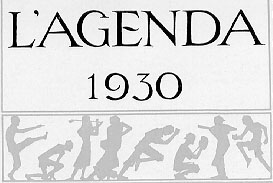
1926-1930

|
1926
|
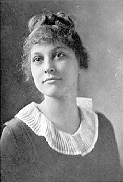 |
DOROTHY THOMPSON GILBERT, '19 One of the comparatively few women jurists in the east is a Bucknell graduate. Mrs. Eugene I. Gilbert, of Philadelphia, Pa. Mrs. Gilbert was formerly Dorothy Marie Thompson, '19, and while an undergraduate was a student in the Latin Philosophical Course, coming to Bucknell from Haddonfield, N. J. High School and Ursinus College. Mrs. Gilbert was recently honored with election to the Presidency of the Philadelphia and Temple University Chapter of the International Legal Fraternity--Phi Delta Delta, Mrs. Mabel Willebrandt, Assistant Attorney General of the United States is national president of this fraternity. Besides her election to the chapter presidency, Mrs. Gilbert was also selected to represent this group of the meeting of the American Bar Association in Denver, Colorado, in July. Bucknell Alumni Monthly |
|
1926
|
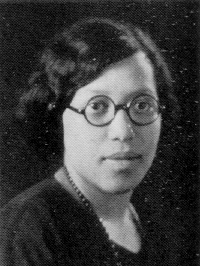 |
Susan Kennedy '26 and Hazel Kennedy '29, sisters from Muncy, would be the next black women to graduate from Bucknell. WRC Interview 1994, L'Agenda 1924, 1926, 1929 |
|
1926
|
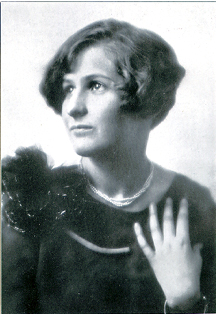 |
Binghamton, N. Y., Freshman Elected "Miss Popularity" Miss Priscilla Branch, '29, more familiarly known about the campus as "Jerry" outshone all the seniors, juniors and sophmores and captured the Belle Hop Popularity prize, which was a silver loving cup. For ten days the contest was the principal topic of conversation about the campus and when Malcolm Jones, '26, editor-in-chief, of Bucknell's humorous publication, presented "Jerry" with the cup of the first Belle Hop dance on March 27, there was more talk but that consisted of congratulations to the most popular freshman. "Jerry" comes from Binghamton, is a pledge of Pi Beta Phi, and secretary of her class. It is to be regretted that the campus will lose her next fall, for she is going to pursue the elusive theories of education at Wellesley College. Bucknell Alumni Monthly, 5/26 |
|
1926
|
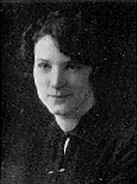 |
Maud Keister Jensen graduated from Bucknell in 1926, earning a bachelors of science degree and immediately began her work as a missionary in Korea. She did general church work, taught theology, and helped to found an orphanage. Thirty years later, Maud became the first woman to be granted full rights as a Methodist minister in the U.S. In addition, Maud served on the Central Council in Korea, receiving honors from both the Korean Methodist Church and government for her work as a missionary. Following her retirement, she continued to work in various roles at the Madison United Methodist Church in New Jersey and earned a doctor of philosophy degree from Drew University at the age of 74. She was 94 at the time of her death in October, 1998. Madison Eagle, October 15, 1998. |
|
1928
|
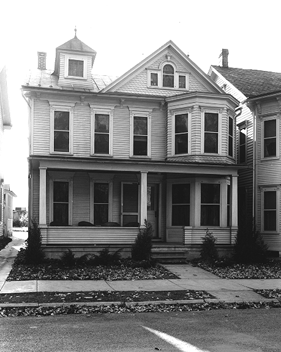 |
Bucknell acquires the property at 315 South Sixth Street. It was the home of Frederick E. Bower, Esq., Class of 1869, brother-in-law of President Harris. Bower assisted Judge H. M. McClure, Class of 1877, and A.W. Johnson, Class of 1896. Bower was the last surviving member of the Bucknell student brigade which fought in the Civil War in 1863 when Pennsylvania was invaded by rebel calvary. In 1929, Bower House is remodeled and used as a residence for unmarried women faculty members and librarians until 1943. Some residents include: Gladys Calkins Cook, who taught French; Sylvia Derr of Physical Education, Ann Dougherty and Miriam Evans, Librarians; Grace Jenkins and Mellicent Melrose, Music Department. In 1946, the home becomes a dormitory for 11 women majoring in French and is renamed French House, or La Maison Francaise. It continues in this capacity until 1965 when the house is razed to make room for a new women's dormitory which will become known as Vedder Hall. Theiss; Buildings and Areas Notebook, University Archives |
|
1928
|
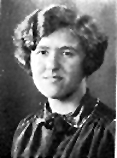 |
Recollection Christine Sterner Moyer is a long-time Lewisburg resident and graduate of the Class of 1928. Christine is a charter member of the local American Association of University Women. She has also been a valuable friend to Bucknell, establishing a scholarship in memory of her late husband. She encourages giving to Bucknell. In her opinion, many people go on to be successful because of the education they receive here. Thus, it makes sense that they should reciprocate and help others. Christine remembers the rules then were much different than they are now. "The right to vote had been just a few years before. It was the flapper era and it was supposed to be wilder than it had been." At that time, Bucknell "had Freshman hazing. I remember they sacked my room--143 Harris. Sacking meant they went in and turned everything upside-down, pulled out the bureau drawers." She also recalls, "Male students had their own rules," especially concerning fraternity initiation. "They used to tie them on the railroad tracks and frantically get them off just before the train came." "Religion," she remembers, "was stressed greatly. All the board of Trustees were Baptists -- the President, the dean and most of the faculty -- and if you weren't Baptist before you came, you had better be one if you wanted to stay." Christine clearly recalls the outcry over a Biology questionnaire prepared by Dr. Rice. "The parents and some of the students were highly incensed because one of the questions was, 'Did you ever have sexual intercourse?' This was not a subject to be discussed. The facts of life were not told in college." However, some things never change. "There was dating and couples." At that time, "Bucknell had more boys and girls meet at college and marry than any other college in the United States. I don't know how they decided upon this fact of life... but there were lots of people in the class that married each other." She, herself, married a Bucknellian. WRC Interview, 4/24/1995 |
|
1928
|
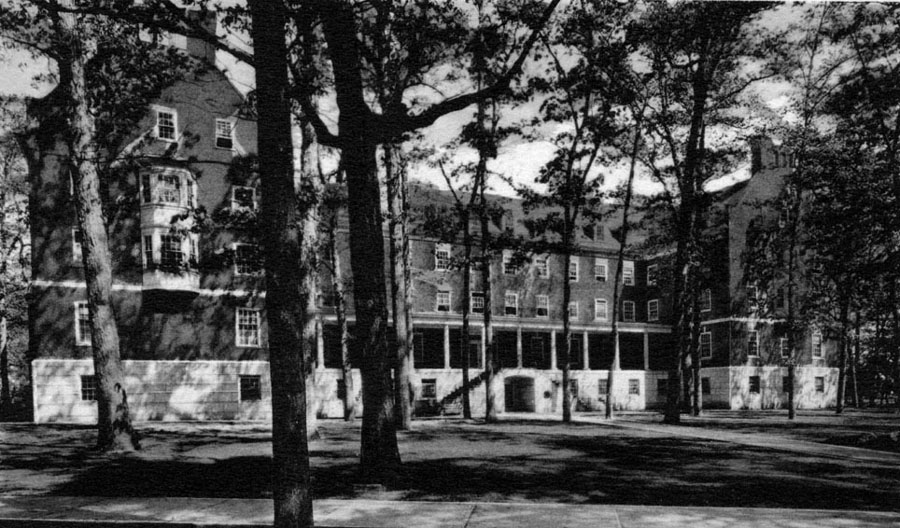 |
The 12 years since 1919 have seen the number of women students increase from 235 to 407. In 1919, only 12 girls, not counting the town or commuting students, were quartered outside of the college buildings. As the numbers increased from year to year, it became necessary to rent additional houses, and also to place many girls in private homes. In 1928, the 160 living in small groups scattered about the town were gathered into the splendid new dormitory which was build for the women students. Memorials of Bucknell University, 1919-1931 |
|
1929
|
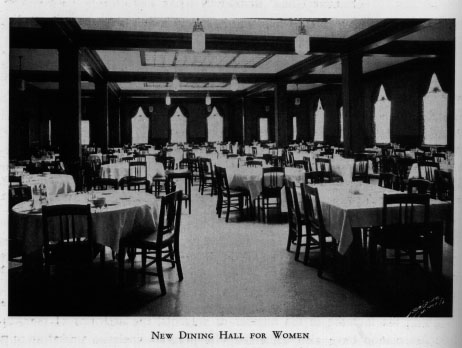 |
Every year since 1925, the women students have by unanimous consent observed Golden Rule Sunday by substituting for the usual Sunday dinner such a limited meal as the children in the orphanages of the Near East were obliged to eat daily--stew, cocoa, dark bread with no butter, and stewed apricots. The difference in cost of the two meals was contributed during the first years to the work of the Near East Relief, and for the past three years to the educational work of Mr. and Mrs. Loren M. Reno, in Brazil. Memorials of Bucknell University, 1919-1931 |
|
1929
|
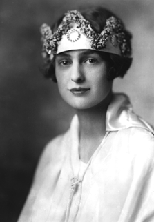 |
Miss Ruth Cooper - May Queen Dainty blonde, senior co-ed at Bucknell University, who was crowned May Queen in the recent May Day Festival. On the campus at Lewisburg Institution. She is the daughter of Rev. A. W. Cooper of Allentown. Press Release Bucknell University Archives |
|
1929
|
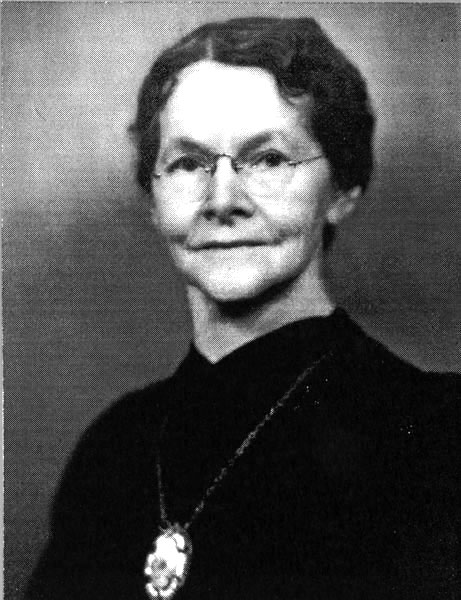 |
Recollection Professor Jennie Phillips was one professor to teach senior English honors classes. She is remembered by Eloise Mallinson, '29, during an interview: "But my senior year, my last year of honors was almost like graduate work. It was a real toughie. As a matter of fact, there were only, I think, six or seven of us that were elected to that course, and they were only students who had a heavy major in English. And we read . . . each week we read literature that would have been taught for a semester. And we had no classes. We had class at the end of the week. It was a seminar. But, we just read till we were blind. And, they had a place up in the library where we could get back at the stacks and we had a desk there so we could be quiet and isolated and we just read day after day just as fast and just as far as we could read. I developed sciatica and the doctor told me I'd have to stop going to school for awhile, which I didn't do because I had fifteen credits or something like that tied up in this honors course. I worried through it somehow. One boy attempted suicide. One dropped out. It was a real horror when I look back on it -- nothing was worth that. And, what they did was to pile it on us to see how much we could take -- they were experimenting with the course. And we got through it somehow, but it was terrible. And I had never been challenged like that as an undergraduate. Well, each week the professor of that period taught it with the help of the teacher for the week before and the one for the next week. So if you had the course for that week, you might go back and catch up for the week before if you were weak, or start on the next week. So, each week we covered the material for one semester of literature. And it was . . . Dr. Robbins was head of the department then. Nobody knew Mildred Martin -- she wasn't around until 20 years later. And Harry Warvel, Willard Smith, Jennie Phillips, yeah. She was the only woman, I think, on that faculty for that group. She did her week, you see . But we didn't have classes, we had one seminar meeting a week. And, we were responsible every so often for a paper that would take half the period. And by the time we finished that course, we had surveyed the whole field of English literature and American too. But it was something. It was not a pleasant year. WRC Interview, 4/96 |
|
1929
|
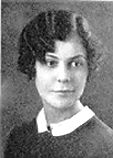 |
Recollection During a 1996 interview, Eloise Mallinson, '29, recalls a normal social life of an undergraduate Bucknell woman during the late 1920's: "One of the things that I remember, I don't know if it would qualify as social, but . . . Sunday afternoons we had after-dinner coffee in the drawing room, in one of the sitting rooms, and . . . it wasn't the dean of women, it seems to me it was the head of the kitchen services, the food services, that poured coffee for us in demitasse and we had little mints as I remember. And we all dressed very specially on Sunday and went into the big living room after dinner and had our demitasse and felt real ritzy. And I suppose that's social too. But really the only social life was furnished by the . . . well, of course, there was prom and the big dances, but general run, somebody among the sororities and fraternities, somebody was having a dance almost every weekend. And that's when we did the Charleston. We did it in the second story of that dormitory building I was telling you about and it was so shaky that when a crowd got in there and Charlestoned the floor bounced up and down. Why that thing didn't collapse with us I don't know, but it didn't. But we did some really strenuous Charlestoning in that room. Somebody would play the piano and a crowd of us would get in there after supper or after dinner and Charleston and bounce that floor up and down. When I look back on it now, it scares me even to think about it." WRC Interview, 4/96 |
|
1929
|
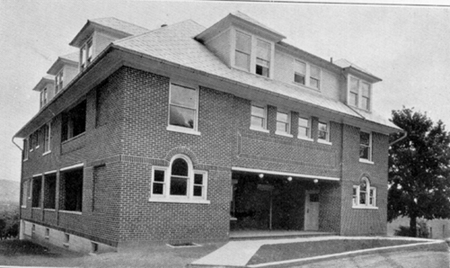 |
Recollection Eloise Mallinson, '29, remembers chapel requirements during an interview: "I had almost forgotten that. We had to. That was compulsory. You had so many cuts you were allowed. But they had proctors that went up and down the aisle and counted to see, you know, took the role. That was up in the Old Main, on the top floor of the Old Main, we'd have to go up there and have chapel. And I think I only had a couple cuts a semester. (The College Inn) was a wonderful place. They had pie that came out of the oven at chapel time. And, people were always torn about whether they'd take a cut and go over and get one of Guy's pies or whether they'd save their cuts and go to chapel. But, there was kind of a break then sometimes. Oh, I suppose chapel didn't last the whole time. Everybody would rush over to Guy's and get a slice of pie -- homemade, wonderful, homemade pie." WRC Interview, 4/96 |
|
1930
|
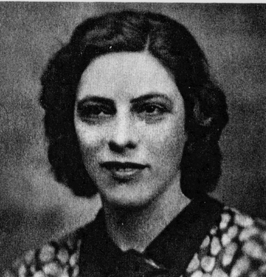 |
Gladys Calkins Cook begins her teaching career at Bucknell in the French Department. After gaining her doctorate from the University of Pennsylvania, she marries music Professor Harold E. Cook in 1942. She is a popular teacher and role model for many students during her nearly 30 years of teaching here. Kalp |
|
1930
|
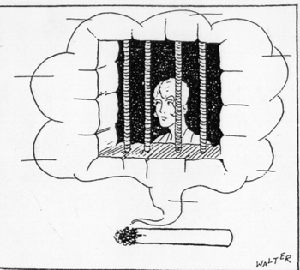 |
Approximately 100 women were summoned before the Women's Students Senate on Tuesday and Wednesday evenings, March 11 and 12, 1930, during investigations conducted for the purpose of suppressing smoking by women in their rooms. On those two nights, forty-four women were placed on a six-weeks' "day, night, and man campus", as a result of having either tacitly or openly confessed before the Women's Senate that they had smoked in their rooms at some time during the present college year. The Senate, taking drastic measures because of reports of widespread violation of the Women's College anti-smoking rule, concluded its investigation, begun Tuesday evening, March 11, in a stormy session lasting until the following midnight, March 12. L'Agenda 1931 |
|
1930
|
EXPENSES OF STUDENTS Women Tuition and general expenses, board, heat, General expenses include such charges as those for the heating, lighting, and use of public rooms, recitation rooms, and the library. The student budget is intended to cover charges for various student activities and organizations, and at the request of the students has been included in the college fee. 1930-31 Bucknell Catalogue |
|
|
1930
|
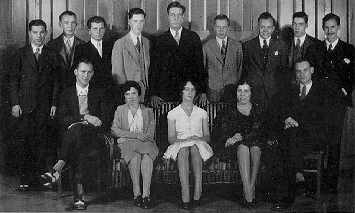 |
Trennie Eisley, English honors student, serves as Editor in Chief of The Bucknellian , the first woman to hold that position. At this time the male to female ratio of the 1200 students is two to one and only five females - three women's news editors and two reporters- work on the predominantly male staff of 27. The weekly paper establishes an editorial platform which supported the abolition of compulsory chapel, the end of smoking restrictions placed on girls, the formation of a student faculty curriculum committee, and the establishment of a University Press. "People felt it meant the end of the paper when I became editor," Miss Eisley remarks, recalling her appointment over 40 years later. "We were not anti-Establishment, but we were advocates of change." As a student, Trennie also is an Associate Editor of L'Agenda , President of Sigma Tau Delta, the national professional English fraternity, and a member of the Education Club, the Women's Debating Team, and Tau Kappa Alpha, the honorary debating society. The Bucknellian, 10/17/31 and 3/2/73 |
|
1930
|
 |
Following a controversial move in March by the Women's Student Senate to campus (or ground) 44 female students for six weeks after they admitted smoking in their rooms, a school dance was canceled since it would be difficult for men to get dates and the dance might be a financial failure. About 100 of the 350 women living in dorms are brought before the Senate during its investigation. The Women's College rule reads: "no college woman may smoke within the dormitories, on the campus, or at college functions." Later the penalty is reduced to four weeks for students showing "good behavior." A poll of co-eds conducted by secret ballot at a meeting of the Women Student Government Association in April indicates that while 112 women smoke, 229 favor the establishment of a smoking room for women. In May, a survey is sent by the Dean of Women, Amelia F. Clark, to 275 mothers of female students to learn their opinions about smoking. Eighty nine percent of the ballots are returned and 88% of mothers responding say they oppose the idea of a smoking room in their daughters' dormitories. Several women students criticize the wording of the ballot as "biased" and "too personal." The mothers' ballots read, "I favor the establishing of a smoking room for my daughter's use" and "I do not favor the establishing of a smoking room for my daughter's use." The Bucknellian, 3/14 & 20, 4/11, 5/22/30 |
|
1930
|
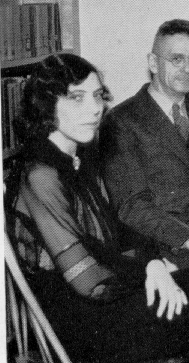 |
Recollection During a 1985 interview, Gladys Cook, retired Professor of French, recalled: "Oh yes, we were not allowed to smoke or drink anything when I came (1930). At that time I didn't smoke much, but I did smoke a little bit. So my first night here I think I went out to the cemetary and found all the students out there smoking. So, I decided I had to find another place. So I met a couple of women that lived downtown and they said, 'you can come down here anytimes you want to smoke.' Well, I didn't smoke much, but just now and then." Public Relations |